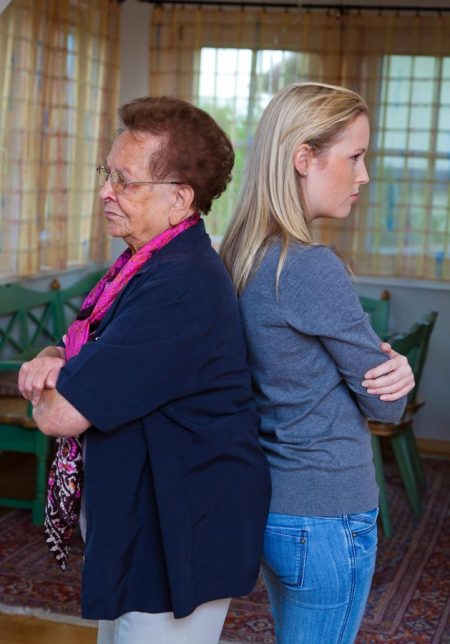Last year, I was left with a Bûche de Noël for 10 friends — and nowhere to go for Christmas Day, and this year a friend canceled Christmas lunch, leaving me holding a 50% deposit I gave to the restaurant ($55 for each of us). I booked the restaurant at least a month ago, and my friend said he had an invitation to a brunch, and wanted to switch to dinner instead.
I will now be spending most of the day alone, and I will be left scrambling for a more expensive dinner reservation. My friend says we can both suck up the deposit. I disagree. I wasn’t the one who canceled, as I’m obviously not going to have lunch alone on Christmas Day. He got a better invitation, and clearly thought this would be a minor inconvenience. Well, it’s not.
What is wrong with people? Should my friend pay all the deposit — or should we split it down the middle?
Not a Grinch
Related: I want to ask my family and friends to contribute $50 toward Christmas dinner. Is that bad etiquette?
Dear Not a Grinch,
I agree with you on one key point and disagree with you on another. Yes, your friend should pay the $110. And, no, you are not cursed. Your friends are cursed — with bad manners.
If you book lunch a month in advance for Christmas Day, and it’s just you and one other person, they should have a bloody good reason for canceling: that means flu, RSV, or COVID, or a death in the family. But receiving a “better” invitation does not cut it. It’s the holiday equivalent of a slap in the face with a Bûche de Noël. I’m sorry this happened, especially two years in a row.
To answer your other question — “what is wrong with people?” — there are people in this world who simply lack the understanding of how an 11th-hour cancelation might make you feel, and there are people who would never dream of ditching a date on Christmas Day to take up another offer. I apply the same principle to your friend as I do to holiday toys that arrive incomplete or without batteries: Some parts are missing — in this case, a sensitivity chip.
Like I said, I also apply the old adage to your friend that a store might use when a customer breaks a valuable vase: “You break it, you bought it.” Your friend broke this engagement, so he should pay for the lost deposit for the entire lunch: $110, please and thank you. But as I told this reader, doing the right thing, and attempting to force someone to do the right thing are two very different things.
You are alone for one particular day, but you are not alone in that fact. It’s estimated that one in nine Americans spend Christmas Day alone, and one million New Yorkers will be spending Christmas Day solo. It’s a tough time of year for a lot of people — those who have experienced loss or who are facing other adverse life events. But there is no small amount of solace knowing that you have done the right thing.
Treat Dec. 25 as a day of pampering, write your New Year’s resolutions, go for a run, arrange a Zoom
ZM,
video call with friends, watch your favorite movie, put a call out on Facebook
META,
to say you are alone and, if that doesn’t yield any results, don’t spend your day doom-scrolling other people’s turkeys and happy-family snapshots. That will likely make you feel less, not more, connected.
Tell your friend that the person who canceled should pay the deposit, and leave it at that. Paying your half of the booking deposit will not restore your trust in your friend; nor will it undo the fact that you have been left high-and-dry on Christmas Day, but you may have time to make another arrangement with friends; if not, you could volunteer for Meals on Wheels or, if they had a need for extra help, for a soup kitchen.
You may not believe it now — and, as sappy as it sounds — there is one thing that will make you feel less alone this Christmas: Helping other people who are worse off than you.
More from Quentin Fottrell:
My mother’s late husband came with baggage — ‘his deadbeat son.’ Is she on the hook for his debts? Can she evict him from her home?
On the day my stepfather died of brain cancer, he changed his trust and left everything to my sister. Do I have any recourse?
My husband and I are in our 70s. We married 3 years ago. He’s leaving his $1.8 million home to a 10-year-old relative. Is that normal?
You can email The Moneyist with any financial and ethical questions at [email protected], and follow Quentin Fottrell on X, the platform formerly known as Twitter. The Moneyist regrets he cannot reply to questions individually.
Check out the Moneyist private Facebook group, where we look for answers to life’s thorniest money issues. Readers write to me with all sorts of dilemmas. Post your questions, or weigh in on the latest Moneyist columns.
By emailing your questions to the Moneyist or posting your dilemmas on the Moneyist Facebook group, you agree to have them published anonymously on MarketWatch.
By submitting your story to Dow Jones & Co., the publisher of MarketWatch, you understand and agree that we may use your story, or versions of it, in all media and platforms, including via third parties.
Read the full article here













